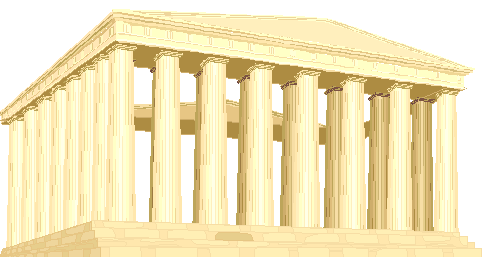|
The Sacred |
|
Notice that he definition for religious experience in this chapter is confined to what a religious experience does; it does not attempt to define what a religious experience actually is. The unspoken assumption behind all of the religious experiences described in this chapter is that each individual sees, hears, experiences, or simply knows something that is not immediately evident to others. In other words, the St. Teresa, Gandhi and Moses are experiencing “ a reality of an entirely different order" than the apparent order of this world. Scholars of religion often identify this reality as "the sacred." |
| Mircea Eliade The individual who was most influential in developing the concept of the sacred was the Romanian scholar Mircea Eliade. His starting point is the contrast between the sacred and profane. "The first possible definition of the sacred is that it is the opposite of the profane." This simple statement actually suggests a profound interpretation of reality. Eliade maintains that there are actually two modes of being in the world: the sacred and the profane. The term profane literally means "in front of" or "outside of" (pro) the temple (fanum) " |
|
| In ancient Rome, sacred actions were performed within the temple (fanum in Latin) while other, non-sacred acts were performed in front of the temple. The profane thus indicates the realm of the ordinary. It is the chaotic, ever changing world of human activity. In contrast, there is another reality known as the sacred. The sacred is the realm of the supernatural; that is, the sacred is the realm of the extraordinary, memorable, momentous, eternal. It is the realm of ultimate reality. Unlike the profane, the sacred is the sphere of order and perfection. | |
| The sacred is thus the reality that "provides absolute and objective authority to an otherwise relative and subjective existence." In The Sacred and the Profane (pp 12-13), Eliade writes: | |
|
|
| It should be noted that Eliade does not
necessarily insist in the existence of an entirely different order.
What cannot be denied, however, is that across time and place,
individuals have experienced what Eliade calls "a reality of an entirely
different order than those of this world."
If there is a reality that is not readily apparent in the ordinary world, how do individuals experience this sacred realm? Eliade argues that many types of objects, people, places, events, etc. can disclose the sacred. The act or event or object that manifests the sacred is known as a hierophany (from Greek hiero- "sacred," and phainein, "to show"). |
